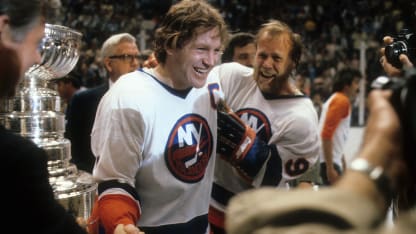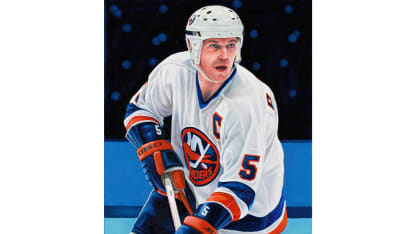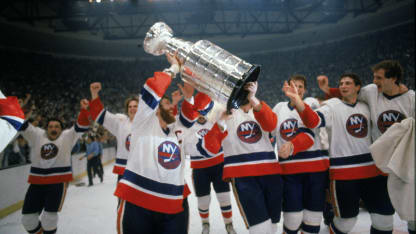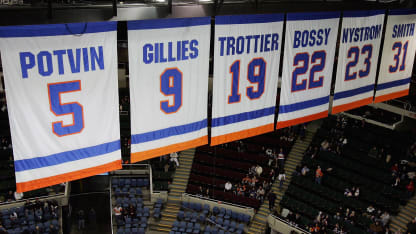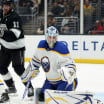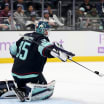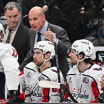"I wanted to be the captain, (and) I wanted the dressing room to respect that fact," Potvin said. "My leadership qualities had nothing to do with what I said. It was important to me to go out night after night and show that intensity."
The Islanders would go on to win an NHL-record 19 consecutive playoff series, an achievement Potvin believes will never be duplicated. The 1983 team was perhaps the most storied of them all, outscoring four playoff opponents 94-53 and sweeping the Edmonton Oilers in the Final.
That those Oilers -- which included some guys named Gretzky, Messier, Coffey, Kurri, Anderson and Fuhr -- would go on to forge their own dominance makes the Islanders rout that much more remarkable.
"I am not going to be humble about it," Potvin said. "I think it's the best team in the history of the game."
By the time he retired at 34, Potvin had 310 goals, 742 assists and 1,052 points, an NHL record for a defenseman at the time (Potvin is seventh on the all-time list), surpassing the 915 points racked up by Orr, the man widely acclaimed to be the greatest defenseman in NHL annals. Because they played against one another and because he broke Orr's streak of eight straight Norris trophies as the League's preeminent defenseman, Potvin found himself routinely compared with Orr, often unfavorably, and he understood implicitly what he was up against.
"If you would compare NHL defensemen to a rock band," Potvin once said, "Bobby Orr was the Beatles and then there was the rest of us."
In an interview with Islanders News shortly after Potvin's retirement, Orr was much more inclined to praise Potvin than engage in the comparisons.
"When the Bruins played the Islanders, it was understood throughout our team that it was mandatory to shut Denis down," Orr said. "If we let him carry the puck at will, the Islanders could beat us. That's not to say they were a one-man team, but Denis was definitely the dominating player for New York, and one of the best in the league.
"Offensively, he was incredible. He was such a big guy who could skate like the wind. One of the reasons I think it's ridiculous to try and decide who was better between the two of us is because we played under drastically different systems. In Al Arbour's scheme, there was no way Denis was allowed the freedom to roam with the puck the way I did in Boston. If he could, who knows how many more points he might have had? Defensively, he was underrated. Potvin more than held his own."
Potvin, for his part, is deeply content with captaining his team to the four Stanley Cups, with his body of work across 15 years. He never second-guessed his decision to retire at an early age, not wanting to overstay as his sublime skills began to erode. He skated away in 1988, playing his final game on April 12 against the New Jersey Devils, a 4-2 loss in Game 5 of the Patrick Division Semifinals.
Could a decade and a half really have passed since Potvin took to the ice in the Forum for the first time against his boyhood idols, the Montreal Canadiens?
Indeed it had, even if the memory seemed as fresh and pristine as pregame ice.
"It was the most nervous I've ever been," Potvin once told an interviewer. The nerves didn't improve any when the great Henri Richard came right at him, going wide, sticking out his left arm -- one of his trademark moves -- to carve out space.
The kid defenseman hung with him, though, and was only getting started. In 1991, Denis Potvin, onetime fullback turned NHL icon, was elected to the Hockey Hall of Fame, fittingly with longtime teammate Bossy. There was nobody to hip check, no power play to run, only a transcendent moment to savor. Someone told him it was the crowning glory to his career, and Denis Potvin, No. 5 of the New York Islanders, liked the way that sounded.
